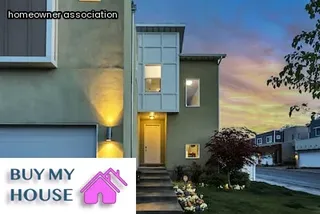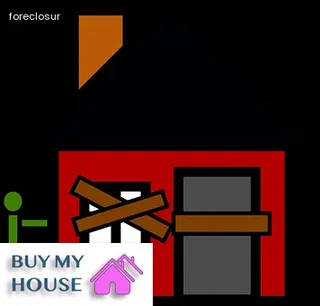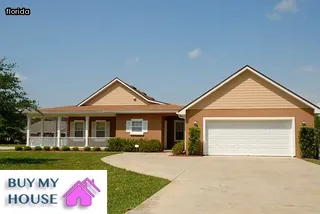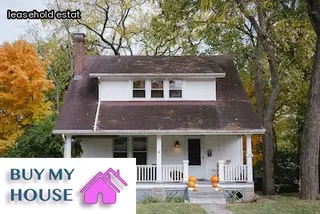In Florida, homeowners who are members of a Homeowners Association (HOA) or Condominium Owners Association (COA) are legally responsible for paying their dues. If dues remain unpaid, the HOA or COA can place a lien on the property, which is a legal encumbrance that can result in foreclosure and other financial consequences.
It is important to understand how HOAs and COAs handle liens in Florida so you can avoid them if you fall behind on your HOA or COA dues. In most cases, HOAs and COAs will send out notices to homeowners before placing a lien on their property informing them of their delinquent dues.
This gives homeowners an opportunity to pay what they owe before the lien is filed. If a homeowner does not pay the dues after receiving notice, the HOA or COA may decide to hire an attorney who can help them file a lien against the homeowner's property.
Once a lien has been placed on the property, it will remain until all back dues have been paid in full. The best way to avoid foreclosure and liens due to unpaid HOA or COA dues is by staying up-to-date with payments and understanding all of your rights as an association member.

HOA and COA foreclosures in Florida can be a complicated process, but understanding how they work is key to avoiding foreclosure and liens due to unpaid dues. Generally speaking, HOA dues are mandatory for homeowners who live in a community governed by an HOA or COA.
When dues are not paid, the board of directors will typically issue a demand letter followed by a lien against the homeowner's property. If the homeowner does not pay the past due amount within the specified time frame, the HOA has the right to pursue foreclosure on the property.
The foreclosure process is then handled through Florida courts with strict rules and regulations that must be met by both parties in order to successfully complete it. Ultimately, if an agreement cannot be reached between the homeowner and HOA/COA, foreclosure may take place with all associated costs and fees being passed on to the delinquent homeowner.
Knowing how HOAs and COAs handle foreclosures can help you plan ahead and avoid any legal issues arising from unpaid dues.
The financial impact of an unpaid HOA or COA lien can be severe if left unresolved. The most serious consequence of not paying dues is the potential for foreclosure, which can damage your credit score and leave you without a place to live.
Unpaid dues also open up the possibility of a lien being placed against your property, which can significantly reduce its value and make it difficult to obtain financing in the future. In addition, the homeowner may incur additional fees such as legal costs associated with defending against a foreclosure lawsuit.
Paying HOA or COA dues regularly is essential to avoid these unpleasant repercussions, so it’s important to stay on top of payments and take any necessary steps as soon as possible if you fall behind on dues. Understanding all the consequences of an unpaid lien will help you make decisions that will protect your interests in the long run.

When a homeowner in Florida is facing unpaid HOA or COA dues, it can be difficult to know what steps to take. It is important for homeowners to understand that when an association takes legal action for non-payment, it can result in foreclosure and liens.
In order to avoid these possibilities, when a dispute arises over HOA or COA dues, homeowners should seek legal help as soon as possible. A lawyer will be able to advise the homeowner of their rights under the law and provide guidance on how best to proceed.
They may also be able to negotiate with the association on behalf of the homeowner in order to reach an agreement that works for both parties. If negotiations fail, a lawyer will be able to represent the homeowner in court if necessary.
With professional legal help, homeowners can protect themselves from foreclosure or liens due to unpaid HOA or COA dues and resolve disputes without risking their financial security.
In Florida, homeowners associations (HOAs) have the right to collect unpaid fees from homeowners in order to remain financially viable. This collection process is governed by regulations set at the state level.
Depending on the type of fees and when they are due, HOAs may use a variety of methods to collect payments from delinquent homeowners. They can issue fines or late fees, place liens on properties for unpaid dues, or even take legal action through foreclosure proceedings.
Ultimately, it is important for homeowners to remain aware of their HOA's fee structure and payment deadlines in order to avoid any financial penalties or potential foreclosure proceedings.

Working with a lawyer can help to navigate the complex rules and regulations of unpaid HOA dues in Florida. If you are facing foreclosure or a lien, legal counsel is essential to help protect your rights and assets.
An experienced lawyer can review the terms of your HOA agreement and advise on how best to address the issue. They may be able to negotiate with the association for a payment plan or an acceptable resolution, such as waiving part of the debt or removing the lien from public records.
Your lawyer should also help you understand potential defense strategies, including if there was an error in calculation or if the HOA failed to comply with their own rules and regulations. In addition, they can provide guidance on filing any necessary paperwork, like dispute notices and claims of lien exemption.
The goal is to prevent foreclosure and preserve your rights as a property owner.
In Florida, it is possible for an HOA to file foreclosure on unpaid dues. Homeowners must understand the consequences of not paying their HOA fees, which can include lien placement and ultimately, foreclosure.
To avoid such a costly consequence, homeowners should work with the HOA to come up with a payment plan. The HOA may be willing to agree on an installment plan or reduced payments in order to collect their dues.
It is also important that homeowners stay current on all future payments, as this will help prevent any further action from the HOA. Additionally, if the homeowner is able to pay off the delinquent amount within a certain timeframe then they may be able to negotiate with the HOA and not have to go through foreclosure proceedings at all.
Lastly, if the homeowner cannot afford to make payments or pay off the balance due then they should seek out legal advice as soon as possible in order to determine other options that may be available. In conclusion, it is possible for an HOA to foreclose on a property in Florida due to unpaid dues but there are steps that homeowners can take in order to avoid this outcome.

Falling behind on payments to a homeowners association (HOA) can have serious consequences. In the state of Florida, late fees are applicable when HOA dues remain unpaid and, if left unresolved, can lead to foreclosure and liens on the property.
Foreclosure is a serious risk when dealing with delinquent HOA dues because it involves losing title to your home and all assets associated with it. Additionally, liens may be placed on any current or future assets, such as cars or other real estate properties, as a result of non-payment of HOA dues.
Although foreclosure and liens are common outcomes of unpaid HOA dues in Florida, there are measures that can be taken to avoid them. Understanding the consequences of not paying HOA dues is essential in avoiding foreclosure and liens due to delinquent HOA fees.
Filing an HOA lien is a necessary step if homeowners in Florida have unpaid dues. The first step is to look at the governing documents of the homeowner’s association, which typically outlines how much time must be given to the homeowner before a lien can be filed.
Depending on the state regulations and association rules, this timeframe could range anywhere from 30 to 90 days. Once this timeline has passed and no payment has been made, the association can send out a notice of delinquency and demand full payment within a certain period of time.
If payment is still not received after that time has elapsed, then the next step would be filing the lien with the county recorder’s office. This will make it public knowledge that there are unpaid dues owed to the homeowner’s association and will allow for future foreclosure proceedings to begin should nonpayment continue.
When filing for an HOA lien, associations should make sure they use all necessary legal forms, as well as include any additional attachments or records that may apply. Additionally, it is important to keep accurate records regarding all delinquent payments from homeowners so that associations can avoid any disputes or legal issues down the line.

When filing an HOA foreclosure in the state of Florida, there are certain requirements that must be met. Before taking any legal action, it is important to serve the homeowner a Notice of Intent (NOI) to File an HOA Foreclosure.
The Notice should include information such as: the name and address of both the homeowner and the association; a description of the property; an accounting of all unpaid assessments due, including late fees, interest, costs for collection activities and attorney's fees; and a demand that all overdue assessments be paid within 30 days. The NOI must also provide a statement that failure to make payment within 30 days will result in foreclosure proceedings.
Additionally, it should contain information about how the homeowner can obtain additional information on how to avoid foreclosure or lien action from their HOA.
Filing for bankruptcy is one possible way to eliminate unpaid HOA dues in Florida. It's important to note that not all bankruptcies will result in the elimination of unpaid HOA fees, but when it does, it can be a powerful tool to avoid foreclosure and liens.
Bankruptcy can also provide an individual with some financial relief as they attempt to pay off their outstanding debts, including HOA dues. It's important to understand the different types of bankruptcy that are available, such as Chapter 7 and Chapter 13 bankruptcies, so you can make an informed decision on which option works best for you.
Additionally, it's important to be aware of any potential consequences that may come with filing for bankruptcy and how this may affect your credit score or future financial stability. Lastly, if you're considering filing for bankruptcy because of unpaid HOA dues in Florida, it's essential to consult a qualified attorney who can guide you through the process and advise you on the best course of action.

In Florida, there are laws designed to protect homeowners from unjustified foreclosure or lien by their Homeowner's Association (HOA). Generally speaking, an HOA must provide the homeowner with a pre-filing notice of the amount of unpaid dues and give them at least 30 days to make payments before filing for foreclosure.
The HOA must also provide the homeowner with an itemized statement of the amount owed as well as copies of all relevant documents and records that support their claim of unpaid dues. Furthermore, HOAs in Florida may not foreclose on a home if the homeowner has paid at least 75% of all assessments due and owing prior to filing for foreclosure.
This is intended to protect homeowners from foreclosure when they are making earnest efforts to pay off their debts in full. Additionally, HOAs in Florida may not foreclose if the total amount due is less than $1,000.
Finally, HOAs may not initiate foreclosure actions while bankruptcy proceedings are ongoing unless they are approved by the court.
Once an HOA foreclosure has taken place in Florida, the mortgage lender is responsible for paying back any unpaid dues. The homeowner is not typically liable for the unpaid dues and fees associated with the foreclosure process, but they do remain responsible for their original mortgage loan.
If a lien was placed on the property during the process of foreclosure, that lien must be paid off by the mortgage lender before the homeowner can take possession of the house. The homeowner should always check with their local jurisdiction to determine who is legally responsible for paying off any liens on their home after a foreclosure has occurred.
Additionally, if there are still outstanding dues owed to the HOA, it is important to contact them to discuss options for avoiding additional penalties or late fees.

When an HOA foreclosure occurs in Florida, it can be difficult to reclaim your property. If a homeowner fails to pay the unpaid HOA dues and fees, they may face a lien placed on their home or even foreclosure.
Fortunately, there are ways to avoid this type of situation and reclaim your property should it enter foreclosure. The first thing you should do is contact the HOA to discuss payment options and negotiate a plan that works for both parties.
If this isn't possible, then you may have to look into other options such as refinancing or obtaining a loan from a bank or lender. If all else fails, then it's time to turn to legal counsel who can help you navigate the complex process of reclaiming your property after an HOA foreclosure in Florida.
Knowing the laws and regulations associated with HOAs will also put you ahead of the game in terms of understanding what needs to be done in order to reclaim your property.
In Florida, laws surrounding delinquent homeowner's association (HOA) dues are relatively straightforward. All homeowners are required to pay their dues on time and in full, regardless of their financial situation.
If dues become delinquent, an HOA may pursue various collection actions such as late fees, liens, or even foreclosure proceedings against the homeowner. It is important to note that these collection actions are not the same as those available to creditors; they must be approved by a majority of the members at an HOA meeting before they can be legally enforced.
Fortunately, there are ways for homeowners to avoid foreclosure and liens due to unpaid HOA dues. Homeowners can negotiate payment plans with their HOAs in order to bring their accounts current and keep them from facing serious consequences for non-payment.
Additionally, if a homeowner has fallen behind on payments due to financial hardship or other extenuating circumstances, they may be able to work with their HOAs to find solutions which will allow them to keep their property without fear of foreclosure or lien action.

Understanding acceleration clauses regarding late payments and HOAs is an important consideration for any homeowner in Florida dealing with unpaid HOA dues. An acceleration clause, which is typically included in the HOA's governing documents, allows the HOA to declare the entire balance of outstanding dues immediately due and payable if a homeowner falls behind on their payments.
If this happens, the homeowner may be subject to foreclosure or a lien being placed on their property. Fortunately, there are ways to avoid these serious consequences.
Homeowners can work with the HOA to create a payment plan that works for both parties, discuss potential solutions such as loan modifications or refinancing with a bank or credit union, and take advantage of legal options like bankruptcy protection or dispute resolution services. Taking these steps can help prevent homeowners from having to face foreclosure or liens due to unpaid HOA dues in Florida.
When it comes to unpaid Homeowners Association (HOA) dues in Florida, HOAs have two primary remedies available to them when attempting to collect past due amounts: statutory remedies and self-help remedies. Statutory remedies are those set forth by the state legislature, and may include filing a lien on the delinquent homeowner’s property, foreclosure proceedings, and other legal action.
In contrast, self-help remedies are those that don’t require court intervention or an order from the state legislature; examples of self-help remedies include sending out collection letters or filing a claim against the delinquent owner’s homeowners insurance policy. While self-help remedies don’t have the same legal binding as statutory remedies, they still can be effective in collecting past due HOA dues from delinquent owners.
Ultimately, the best remedy for unpaid HOA dues will depend on many factors, such as how much is owed by the delinquent owner and whether any legal action is necessary to collect payment.
If you don't pay your HOA dues in Florida, there can be serious consequences. In some cases, your community may pursue legal action against you, including foreclosure and liens.
A lien is a legal claim against the property which gives the association the right to take ownership if the debt is not paid in full. Foreclosure occurs when an owner defaults on their mortgage payments and the lender takes possession of the property.
If either of these circumstances arise, it could lead to significant financial hardship for owners. Fortunately, there are steps that can be taken to avoid foreclosure and liens due to unpaid HOA dues in Florida.
Before taking any action, it's important to understand what type of fees are due and why they must be paid on time. Knowing your rights as an owner can help ensure timely payment of dues and expenses, as well as how to handle disputes with the association should one arise.

In Florida, the statute of limitations for HOA fees varies by county. Generally speaking, the statute of limitations for unpaid HOA dues is 5 years from the date of delinquency in most counties.
The statute of limitations may be longer or shorter depending on the county and other factors. Homeowners who fail to pay their dues for more than 5 years could face foreclosure and lien proceedings if they do not take action to resolve their debt.
To avoid foreclosure and liens, homeowners should make sure to stay ahead of their payments and work with their Homeowner's Association to establish a payment plan if needed. By understanding the statute of limitations for HOA fees in Florida, homeowners can ensure they don't incur any unnecessary penalties or late fees due to unpaid dues.
If no one runs for the Homeowners Association (HOA) board in Florida, it can be difficult and even dangerous for homeowners to protect their rights and interests. Without a board in place, homeowners may be unable to enforce HOA rules or regulations, leaving them vulnerable to potential legal action from unpaid dues or members who are not following the rules.
In addition, there is a risk of foreclosure and liens being placed on homes if dues remain unpaid. It is important for homeowners in Florida to understand that without an HOA board, they may have little recourse when faced with issues around unpaid dues and other violations of HOA regulations.
The state of Florida has some resources available for those dealing with this situation, such as free legal advice from local government offices. However, it is best for all involved if an election can be held to fill the HOA board positions as soon as possible so that the proper procedures are followed to avoid foreclosure and liens due to unpaid dues.
In Florida, Homeowners Associations (HOAs) can assess fines to homeowners who do not pay their dues or comply with the rules set by the HOA. The maximum fine an HOA can charge in the state of Florida is currently $100 per violation and cannot exceed a total of $1,000.
Fines are limited to reasonable amounts and are typically used as a last resort after other methods of collecting unpaid dues have been exhausted. It is important for homeowners to understand their rights and obligations when it comes to paying HOA dues and being aware of potential fines that may be imposed for non-compliance.
Understanding how an HOA can impose fines can help homeowners avoid foreclosure or liens and keep them in good standing with their association.